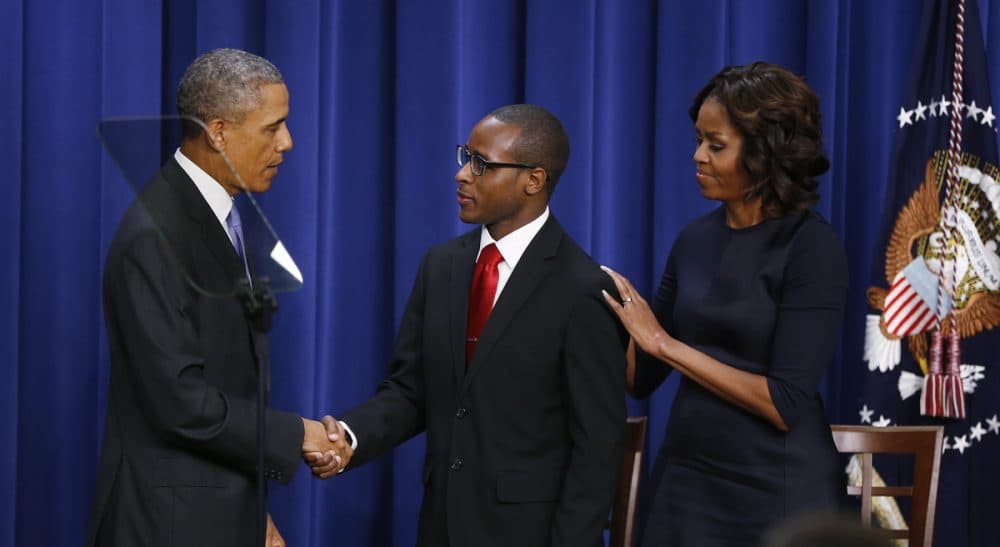Advertisement
Obama’s College Access Plans Will Only Work For Ambitious Students

The president is selling education and is on the lookout for low-income buyers.
Last month Obama put his administration squarely behind increasing college opportunity for low-income students. There are many product upgrades in his college showroom: better payment terms, lower costs, more help. He wants everyone to be able to walk away with something.
You’d think customers would be busting down the doors. But while many walk in to buy, many others stay outside. The first group is eager, but shocked by the sticker price. The second group doesn’t even care to kick the tires. No interest, at any price.
What separates the two is ambition.
Jaime Escalante, an immigrant from Bolivia and dedicated high-school teacher famous for helping Latino students pass their Advanced Placement mathematics exam, once told his students: “The only thing I ask from you is ganas. Desire. There will be no free rides, no excuses. You already have two strikes against you: your name and your complexion.”
Things have improved since Jaime’s time, as colleges now fight with each other to enroll as many diverse students as possible. The common trait of all those admitted is ganas.
What may be surprising is that there are so many people with ganas. The children of single moms of color crowd after-school programs and chartered schools across the country. Immigrants who make up a growing percentage of low-income families do the same. Many underserved families are eager to send their children to college.
But these resource-strapped, ambition-rich families have lots of problems doing so. Their children may have good grades, but terrible SAT scores. Moving these scores up to an acceptable range often requires tutoring and money. KAPLAN, for example, charges between $300-$700 for its online prep courses and around $5,000 for 32 hours of one-on-one tutoring. Not exactly chump change.
Unfortunately, many of the ambitious will not earn a degree. All they will have to show is debt, loss of income and the angst over lost dreams. Every year in the U.S., nearly 60 percent of first-year college students discover that, despite being fully eligible to attend college, they are not ready for post-secondary studies. And even if they are ready, they may not be able to pay for it.
The good news is we have it within our power to help every student with the desire to graduate from college. The president mentioned tools from family engagement to SAT prep — all good. Just as important, Obama is trying to jaw-bone colleges to lower tuition.
The bad news is that too many families with no interest in entering the college showroom are beyond our power to help. We don’t have the tools. Ambition stems primarily from the family. All of us know a story of someone who was inspired by their fifth-grade teacher, but these stories are compelling because they are the exception.
Focusing our resources on families who want to participate in our educational system is the surest way to regain our lead in the educational race against rival countries. And it will eventually improve equality as millions of low-income students earn degrees. But until every family participates, it won’t, and can’t, be equal.
Related:
